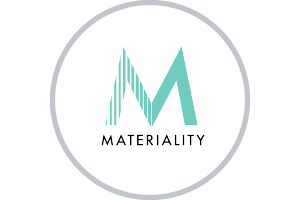
01/03/2021
On February 23, 2022, the European Commission announced a draft Directive on due diligence in the field of sustainable business development!
The Corporate Sustainability Due Dilligence Directive introduces a number of obligations for large and medium-sized enterprises. They relate to the need to implement due diligence procedures in all ESG areas, such as preventing child labor and exploitation of workers, environmental responsibility, preventing pollution and protecting biodiversity.
Who will be covered by the new regulations?
The new rules will apply to the following companies:
Group 1: all EU registered companies with more than 500 employees and more than EUR 150 million in net turnover worldwide, and companies registered outside the EU with a turnover of this amount in the EU.
Group 2: All EU registered companies with more than 250 employees and a global net turnover of at least EUR 40 million that operate in selected sectors (manufacture and sale of clothes, leather and related products, including footwear, agriculture, forestry, fishing , production and sale of food and beverages, extraction and sale of all mineral resources, and production and sale of primary products made from them) and companies registered outside the EU with a turnover of this amount in the EU. For these companies, the rules will apply 2 years later than for group 1.
The Directives do not impose direct obligations on small and medium-sized enterprises (SMEs). However, they will be indirectly influenced by regulation if they cooperate with companies directly affected by the directive.
What requirements will enterprises have to meet?
The obligations imposed by the directive will stimulate business to strengthen cooperation with its supply chain in order to identify potential impacts, relevant topics and implement effective and functional policies and due diligence systems.
The obligations of the companies covered by the directive will include:
Additionally, Group 1 companies must ensure that their business strategy is in line with the goal of limiting global warming to 1.5 °C under the Paris Agreement. Strategic objectives in this regard must be reflected in the remuneration policy of the company’s management.
It should be remembered that the provisions of the directive apply to the company’s own operations as well as to its subsidiaries and the entire value chain. The competent authorities at the national level will be responsible for monitoring compliance with the provisions of the directive.
Several accompanying measures are foreseen to assist companies in complying with the obligations of the Directive. The European Commission can also complement the support provided by the Member States with new measures, including aid to enterprises in third countries.
The subject of extended corporate responsibility for due diligence mechanisms in value chains is not a new topic. Already in 2020, the European Commission presented a Report describing case studies and possible directions of legislative development, including on human rights due diligence. In the report, one of the potential regulatory paths was the introduction of obligations covering businesses registered and running businesses in the European Union. The measurable effect of the implementation of this directive is to be the protection of human rights contained in international conventions.
OUR ADDRESSES:
Registered address
5A Grzybowska St,
Warsaw, 00-132, Poland
Office address:
101 Jerozolimskie Avenue Apt 7,
Warsaw 02-011, Poland
Privacy Policy of MATERIALITY.PL
Read our policy „Privacy Policy”
MATERIALITY Sp. z o.o.,
5A Grzybowska St, Warsaw, 00-132, Poland
All information provided on the website is indicative and does not constitute legal nor any other form of advice. MATERIALITY is not responsible for the use of the information provided on the website without prior seeking professional advice from MATERIALITY experts.